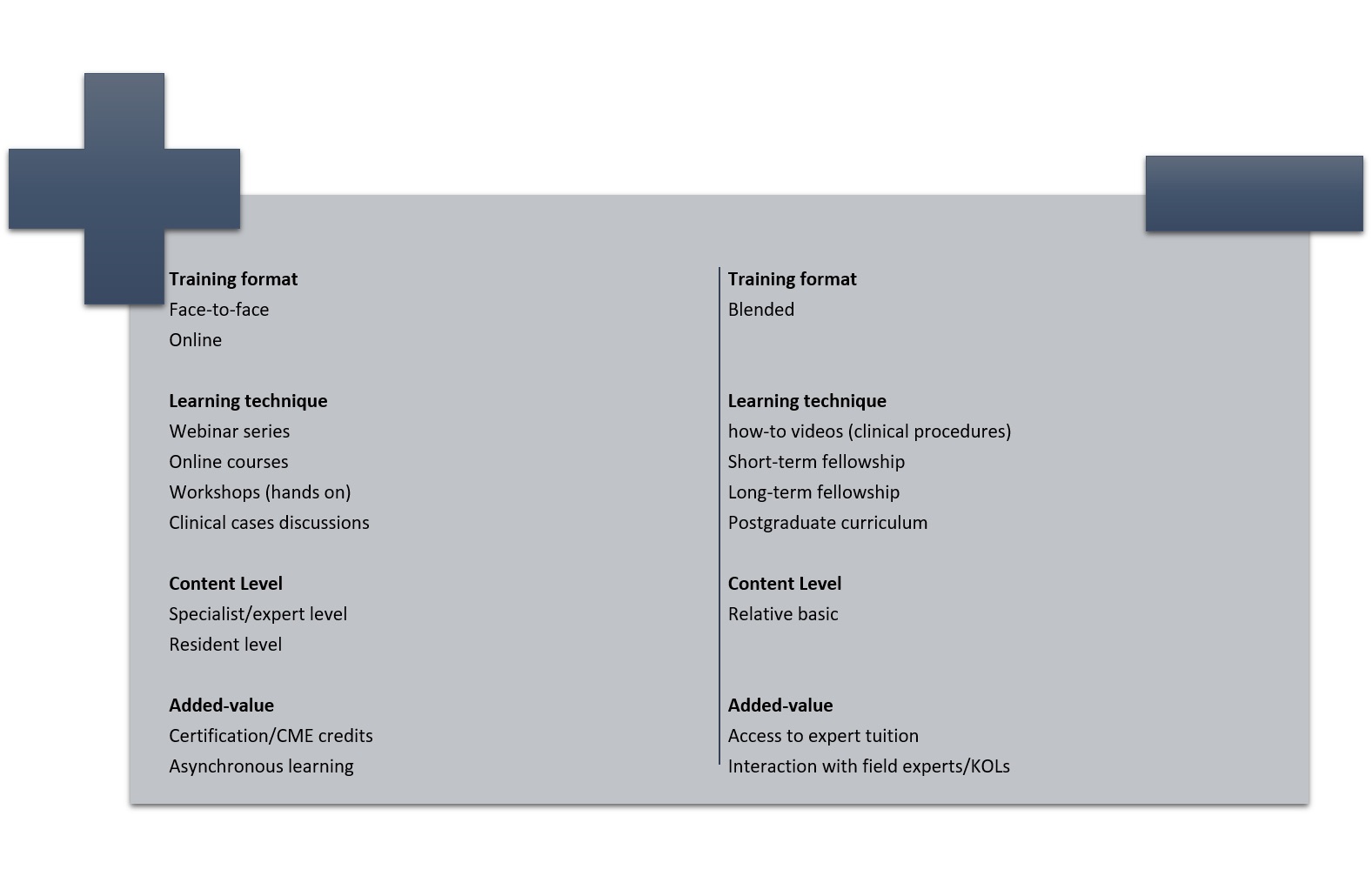EURO-NMD is running a survey to map the training needs in rare neuromuscular diseases in Europe for planning new educational activities that are better tailored to its users and their needs. As of today, about 160 respondents (61% females) from 27 countries completed the survey, including 141 respondents from 18 EU countries (15 EURO-NMD countries). We share here the partial results of this survey.
More than half of the respondents have been practicing as healthcare providers for over than 10 years (55%) and have regular experience with NMDs (78%). The share of respondents aged 30 to 40 years old, 40 to 50 years old or above 50 years old was roughly the same (29%, 31%, and 27%, respectively); only 13% of respondents aged 20 to 30 years old. The medical fields in which respondents would like more training are shown in the attached Table.

For the vast majority of respondents (76%), the traditional face-to-face learning is the ideal training format to acquire skills and knowledge followed by online training (65%). The majority also ranked the blended learning as the third choice of format (66%). The top ranked learning methodologies were webinar series (first choice), online courses (second choice), hands on workshops (third choice) and clinical cases discussions (fourth choice) as opposed to how-to videos of clinical procedures, short- and long-term visits at hosting institutions, and postgraduate curriculum. As for the level of learning expected from a EURO-NMD training programme, most of them (60%) expects trainings at the specialist/expert level for complex cases. However, the majority of less experienced practitioners and those seeing NMD patients only occasionally wishes to receive resident level training for daily clinical practice. Finally, respondents have been asked to select from a list of choices the perceived added value of a EURO-NMD training programme. Over half of respondents (53.5%) believe the main benefit would be to get a certification/CME credits. The flexibility of asynchronous learning was the second choice, followed by access to expert tuition and interaction with field experts .

If you wish to have your say in this survey or send it to someone there is still time! You can either use the link https://forms.office.com/r/CrmXE4h4UF or scan the QR code by clicking the link.




